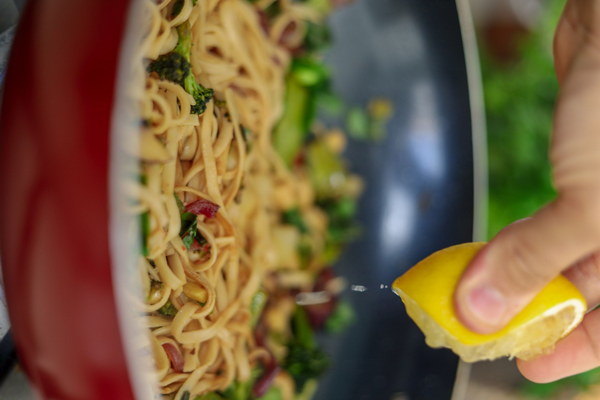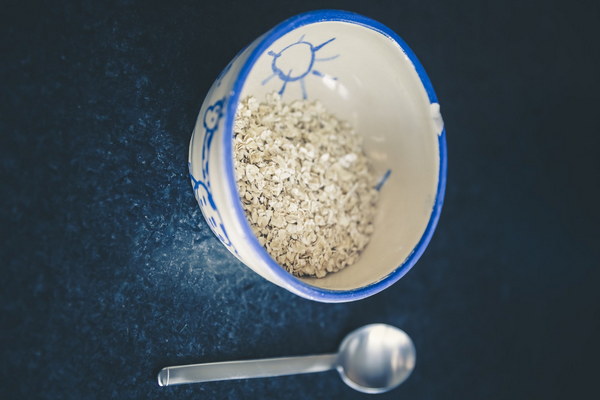Can Hypokalemia Be Treated with TonifyingQi and Blood A Comprehensive Look
Hypokalemia, or low potassium levels in the blood, is a common medical condition that can lead to a variety of symptoms and complications. One of the questions that often arises is whether hypokalemia can be treated with tonifying Qi and Blood, a concept from traditional Chinese medicine (TCM). This article aims to provide a comprehensive look at the topic, exploring the relationship between hypokalemia and TCM, the effectiveness of tonifying Qi and Blood, and the potential risks and benefits of such an approach.
Understanding Hypokalemia
Hypokalemia is characterized by a potassium level below 3.5 milliequivalents per liter (mEq/L) in the blood. Potassium is an essential electrolyte that plays a crucial role in the normal functioning of cells, particularly in the heart, muscles, and nerves. Insufficient potassium levels can lead to various symptoms, such as weakness, fatigue, muscle cramps, and even life-threatening cardiac arrhythmias.
Traditional Chinese Medicine and Hypokalemia
In TCM, the concept of tonifying Qi and Blood is central to the treatment of various conditions. Qi is considered the vital life force that animates the body, while Blood is the substance that nourishes the body and organs. According to TCM, low potassium levels can be a sign of Qi and Blood deficiency, and therefore, tonifying Qi and Blood may be an effective treatment.
Tonifying Qi and Blood in TCM
TCM treatments for tonifying Qi and Blood typically involve herbal remedies, dietary changes, and lifestyle adjustments. Some common herbal formulas used in TCM for hypokalemia include:
1. Baizhu Tang (Atractylodes Macrocephala Decoction): This formula is believed to tonify Qi and stabilize the spleen, helping to address the underlying cause of hypokalemia.
2. Danggui Suo (Angelica Sinensis and Cinnamon Twig Combination): This formula is used to tonify Blood and improve circulation, which may help alleviate symptoms of hypokalemia.
3. Guizhi Fu Ling Tang (Cinnamon Twig and Poria Decoction): This formula is used to tonify Qi, resolve dampness, and stabilize the spleen, potentially addressing the root cause of hypokalemia.
The Effectiveness of Tonifying Qi and Blood in Treating Hypokalemia
While there is limited scientific evidence to support the use of TCM in treating hypokalemia, some studies suggest that tonifying Qi and Blood may be beneficial for certain patients. For instance, a pilot study published in the journal Evidence-Based Complementary and Alternative Medicine found that a TCM herbal formula containing Astragalus membranaceus, Panax notoginseng, and other herbs improved potassium levels and symptoms in patients with chronic kidney disease (CKD) and hypokalemia.
However, it is important to note that the evidence is still preliminary, and more research is needed to determine the effectiveness of TCM in treating hypokalemia. Additionally, the use of herbal remedies should be supervised by a qualified TCM practitioner to ensure safety and efficacy.
Risks and Benefits of Tonifying Qi and Blood
The potential benefits of tonifying Qi and Blood in treating hypokalemia include:
1. Improvement of potassium levels: Some patients may experience an increase in potassium levels after receiving TCM treatment.
2. Alleviation of symptoms: TCM may help alleviate symptoms associated with hypokalemia, such as weakness, fatigue, and muscle cramps.

3. Addressing underlying causes: TCM may help identify and address the underlying causes of hypokalemia, such as kidney dysfunction or malabsorption.
However, there are also potential risks associated with tonifying Qi and Blood, including:
1. Allergic reactions: Some patients may be allergic to certain herbs used in TCM treatments.
2. Drug interactions: TCM herbs may interact with other medications, potentially causing adverse effects.
3. Lack of standardization: The quality and purity of TCM herbs can vary, which may affect their efficacy and safety.
Conclusion
While the use of tonifying Qi and Blood in treating hypokalemia is a topic of interest, more research is needed to determine its effectiveness and safety. For patients considering TCM treatment for hypokalemia, it is essential to consult with a qualified healthcare provider and a TCM practitioner to ensure the best possible outcomes.









